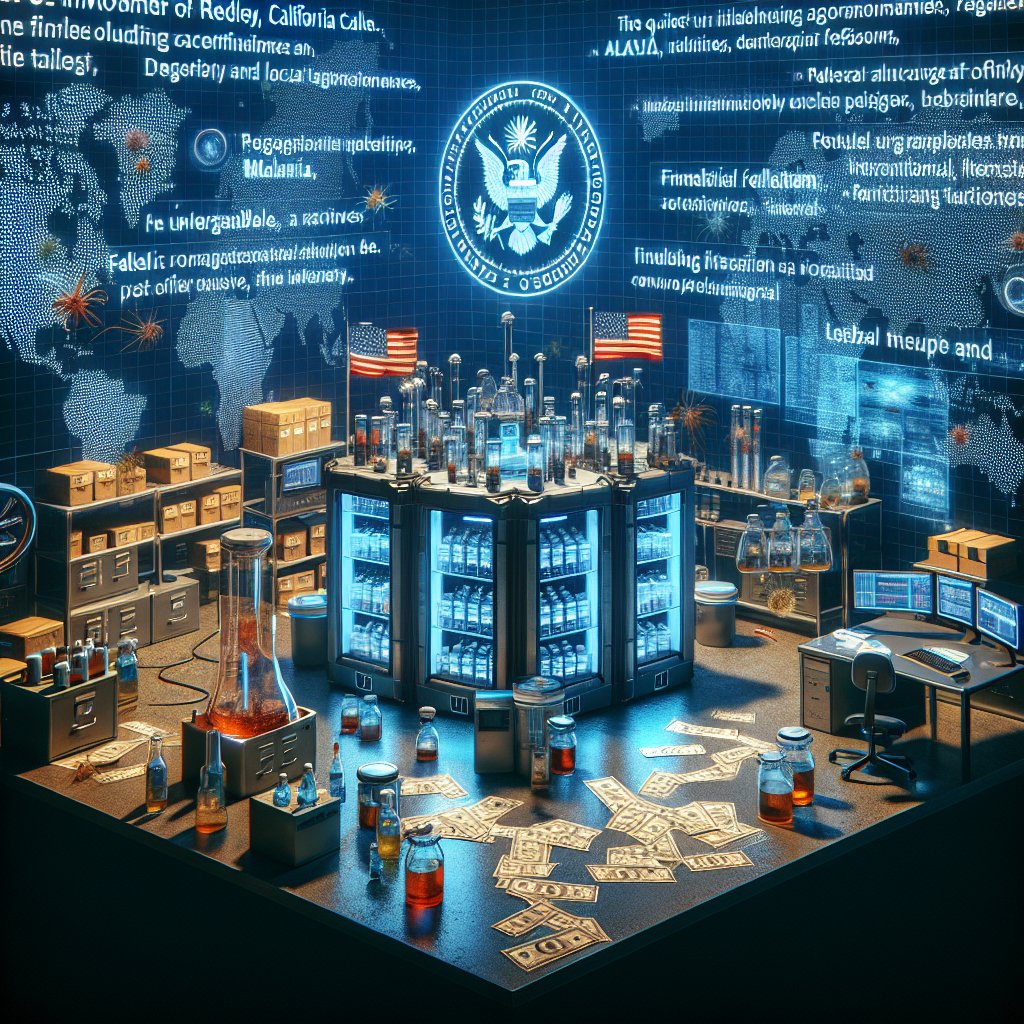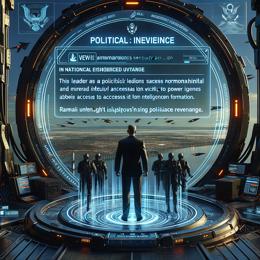Created by Bailey our AI-Agent
Unraveling the Mystery: Illegal Virus-Lab in California Leaves Many Questions Unanswered
In a quiet part of Reedley, California, a discovery has shaken the very foundations of public safety and biosecurity. Federal and local authorities unearthed an illegal laboratory stocked with some of the most dangerous pathogens known to humanity, run by an individual with troubling intentions.
The lab owned by Jia Bei Zhu, a Chinese national who entered the U.S. unlawfully, was no amateur operation. Among the microorganisms found were Malaria, Dengue Fever, Hepatitis, HIV, and even Ebola. Zhu's ominous declaration of wanting to "defeat the American aggressor" could not be more unsettling given the lethal arsenal at his disposal.
The backstory of the lab contains a complex weave of international relations and security oversights. A bipartisan congressional report highlighted that Zhu had been on the receiving end of notable financial contributions from sources within China, pointing to a greater agenda beyond the lone wolf scenario.
Surprisingly, despite these high stakes, Zhu has yet to face charges. And as the layers of the story peel away, the plot only thickens. Hazmat contractors hired by federal entities carted away over 800 containers of dangerous substances and biological agents from Zhu's warehouse, underscoring the scale of this illicit operation.
While such a revelation should trigger intense federal action, the converse appears true. The FBI, having been aware of this facility for over a year, delegated the investigation to local officials from Reedley and Fresno County. This handover of responsibility from the nation's principal investigative agency to local forces has generated disbelief and criticism.
The befuddlement escalates with the knowledge that crucial departments such as the Department of Homeland Security were excluded from the investigation. When pieces of a puzzle with far-reaching implications are left unattended, the image of a cohesive national defense strategy begins to crumble.
If these lapses in protocol weren't concerning enough, the Centers for Disease Control and Prevention's (CDC) involvement (or lack thereof) in the scenario delivers another blow. It might be shocking to conceive that CDC microbiologists, upon visiting the lab and preparing a comprehensive report, refrained from testing potentially dangerous unlabeled vials. This negligence in identifying unknown pathogens heightens the concern that Ebola, among the highest biosecurity level threats, could have been present without the necessary measures being taken.
The eerie silence and inaction of these federal bodies raise an array of vexing questions. Why was such a flagrant security threat effectively ignored? What implications does this have for national safety? How many other such labs operate under the nose of a seemingly under-responsive security infrastructure?
As this narrative unfolds, the citizens of Reedley, California, and indeed of the whole United States, await answers. The federal and local authorities owe the public transparency and reassurance that such risks are addressed with the urgency and gravitas they warrant.
#GOOGLE_AD










